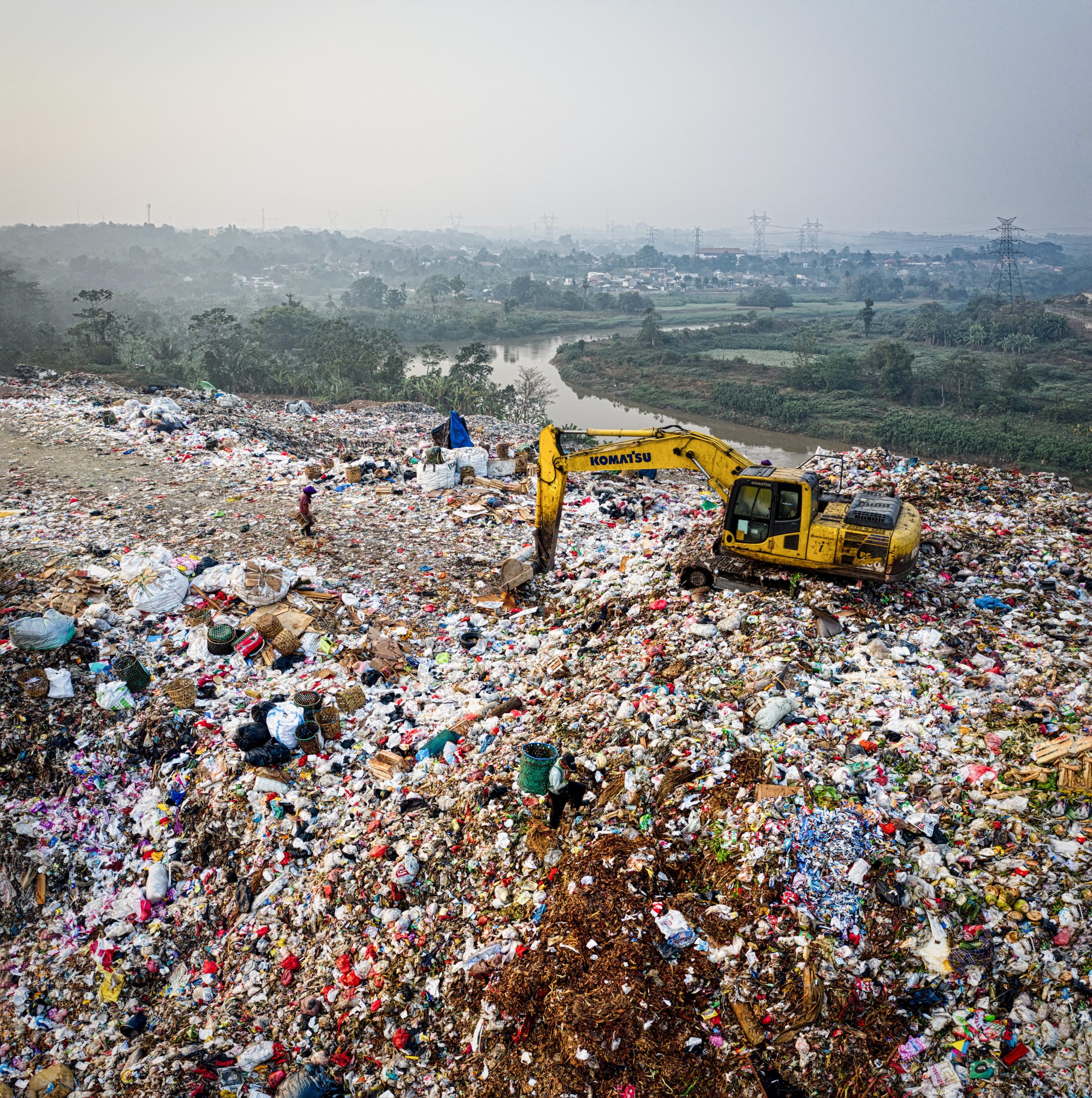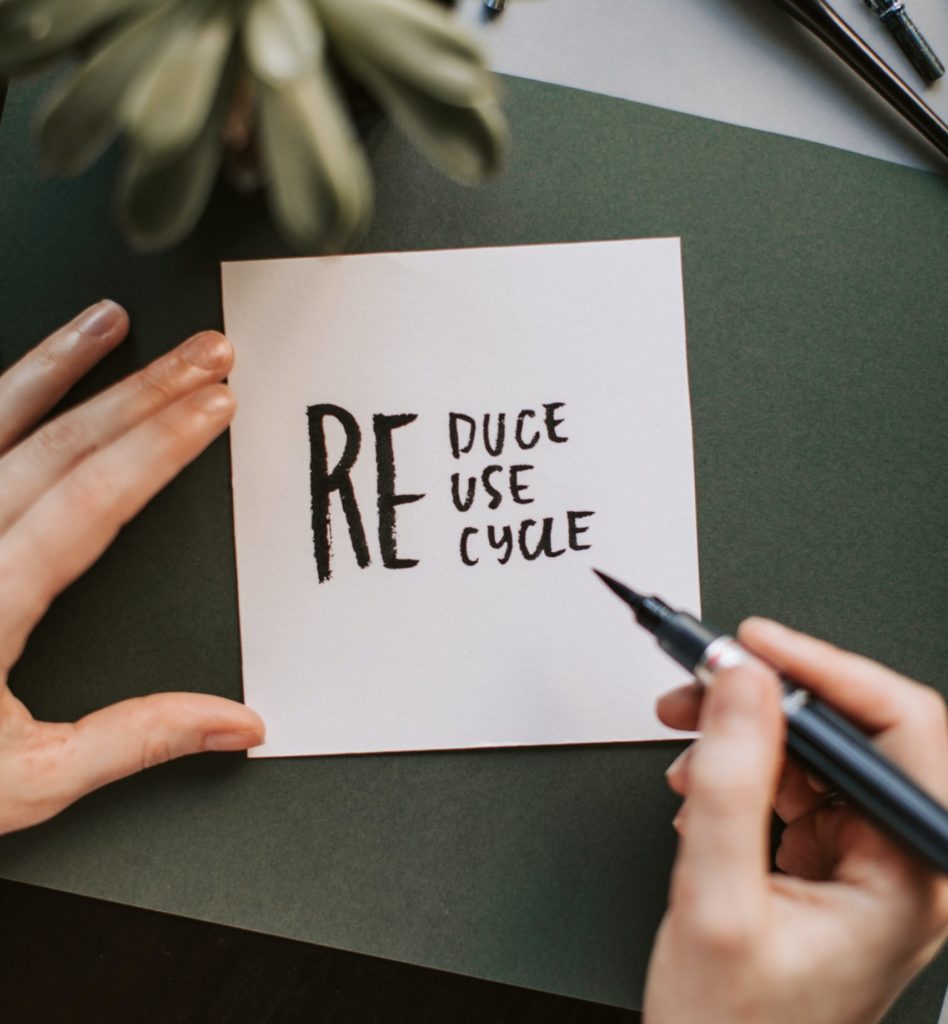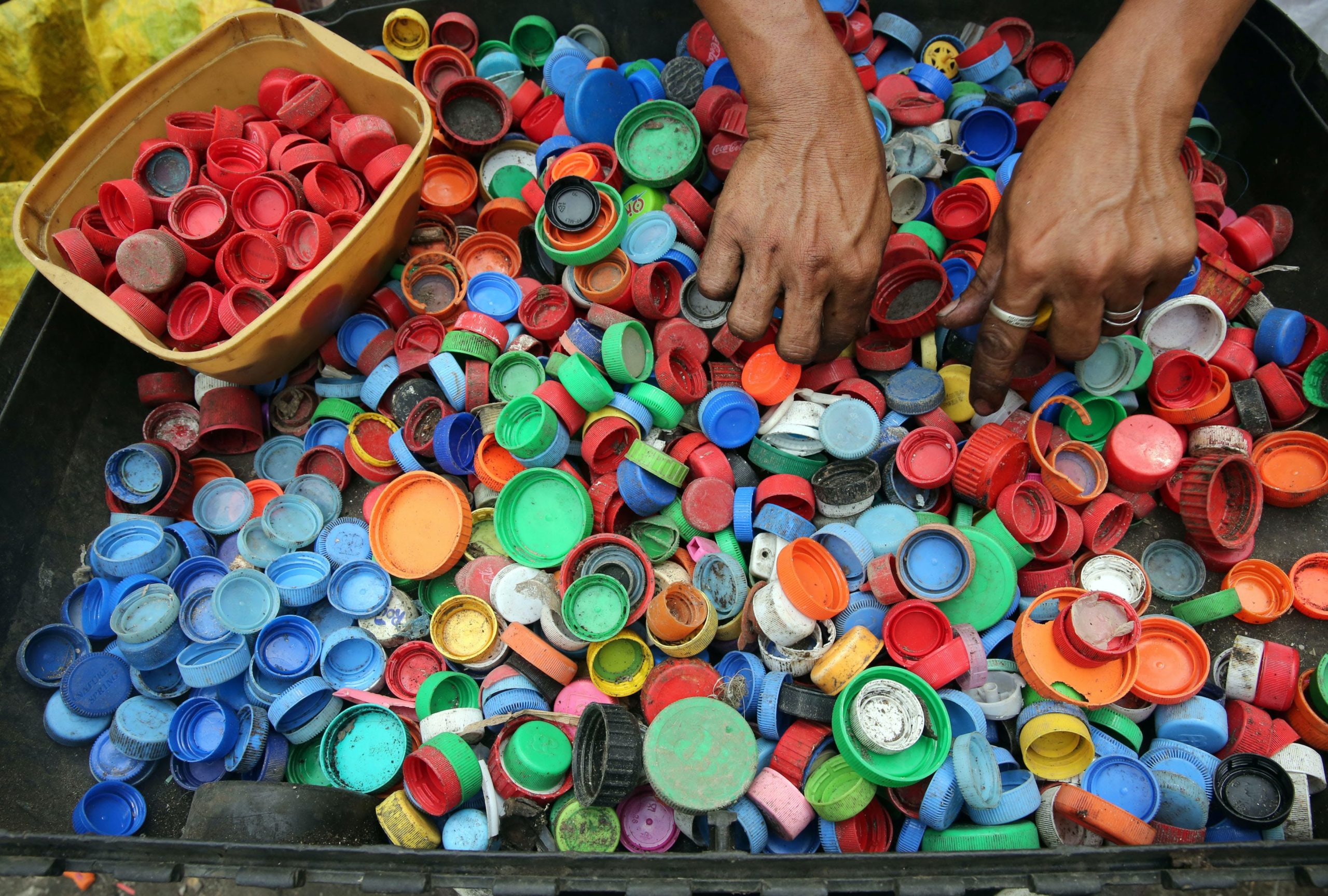AIT's
Campus Waste Management
AIT is committed to reducing the amount of natural resources consumed, reusing the materials taken from nature as much as is possible, and actively creating as minimal waste as possible. It requires reducing waste to landfill, increasing recycling, and managing the creation of waste.
Solid Waste & Plastics Policy
As per the AA-1-2-9 “AIT Sustainability Policy” Annex-4, published on 8 Dec 2021
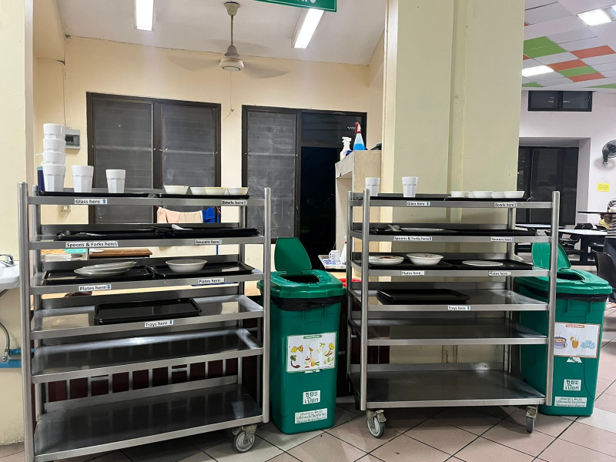
100%
Waste Segregation in Academic Areas by 2024
Strategies:
- Proper disposal of e-waste and IT equipment
- Providing facilities for segregated waste disposal
- Implementation of a waste management system
- Reducing paper usage by 20% by 2027
- Educating stakeholders on recycling opportunities
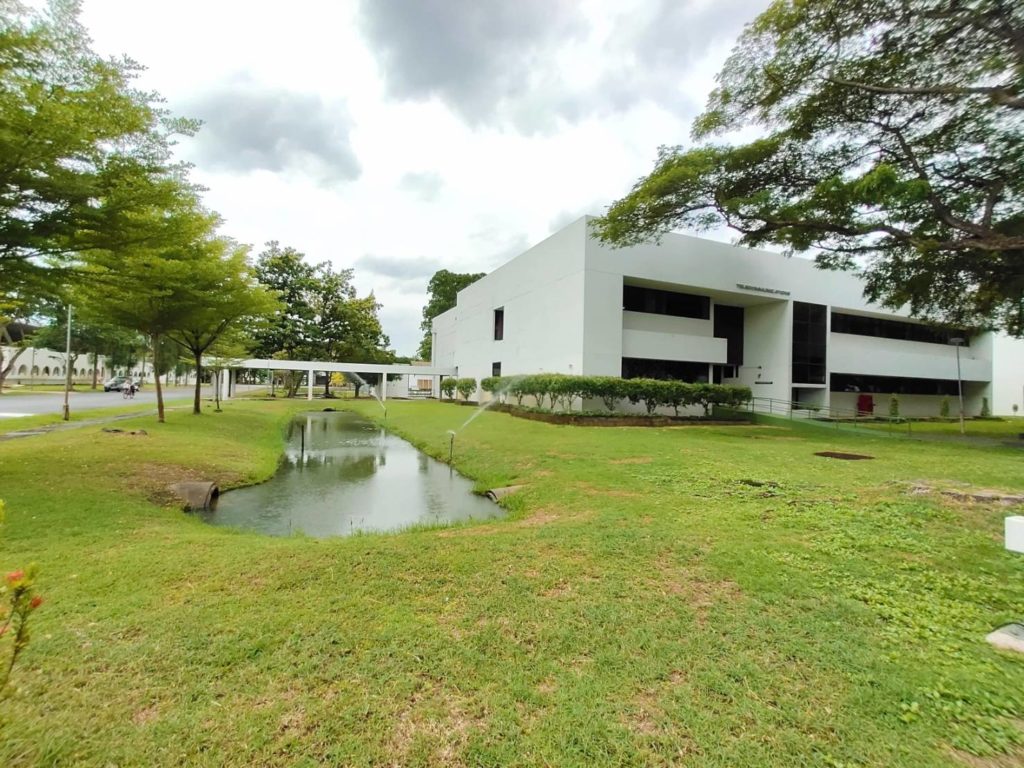
50%
Waste Reduction and Segregation in Residential Areas by 2026
Strategies:
- Reducing waste to landfills to 25kg per person per month by 2026
- Increasing recycling by 20% over 5 years
- Providing facilities for segregated waste disposal
- Implementation of a waste management system
- Utilizing garden waste in campus gardens
- Providing training and induction on waste practices
- Encouraging user-end waste segregation
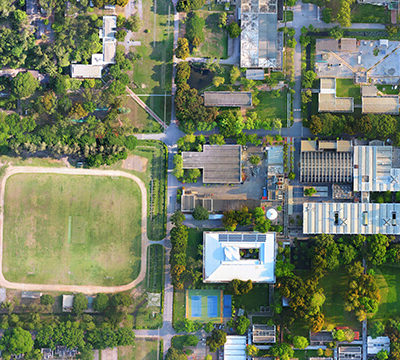
2030
Plastic Reduction and Elimination
Strategies:
- Banning single-use plastic bags and straws from 2022
- Promoting reusable water bottles and cups
AIT Waste Management Protocols
Campus Overview:
AIT’s extensive 329 Acres campus includes academic, residential, and communal areas, such as hotels, convention centers, and concessionaires.
Waste Collection: Outsourced personnel collect garbage twice daily, seven days a week, from 107 locations on campus.
Waste Sorting: Waste is sorted into two main categories: wet waste (green bins with black covers) and dry waste (yellow bins with green covers), promoting effective segregation.
Special Bins: Additional blue bins, allocated for specific waste categories, are available on campus
Bin Distribution: The campus features 183 green bins, 52 blue bins, and 102 yellow bins thoughtfully stationed to facilitate waste segregation.
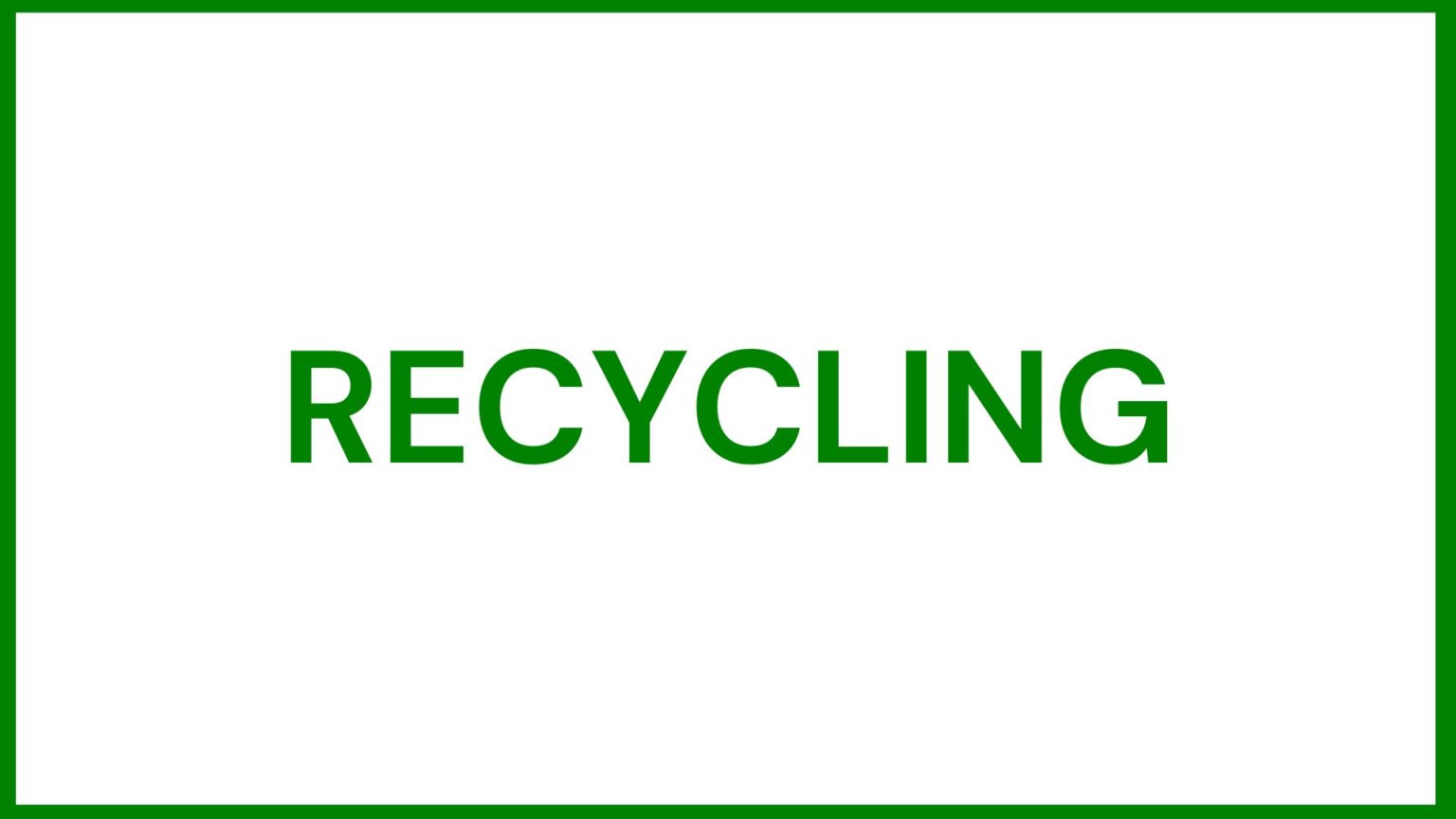
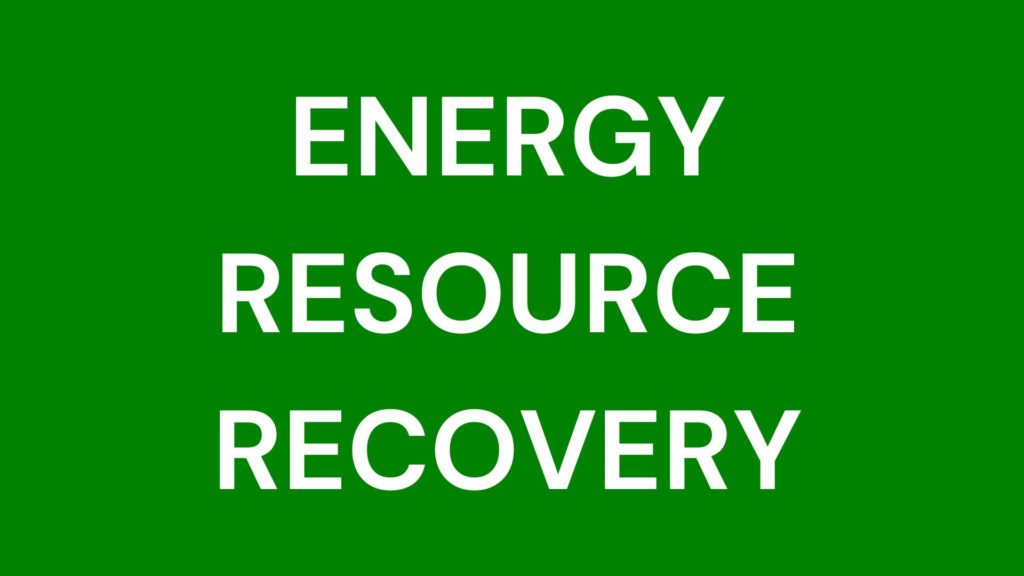
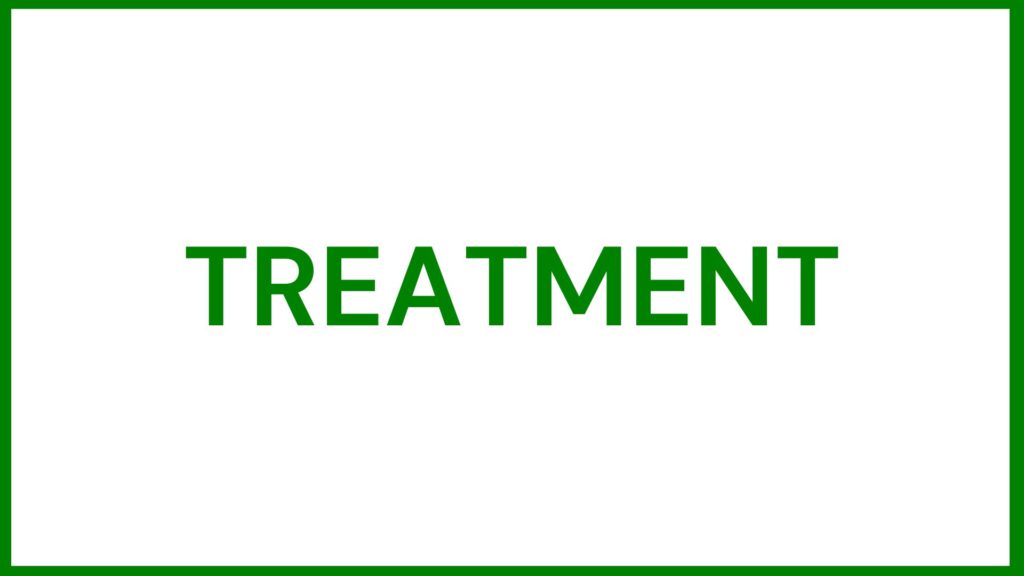

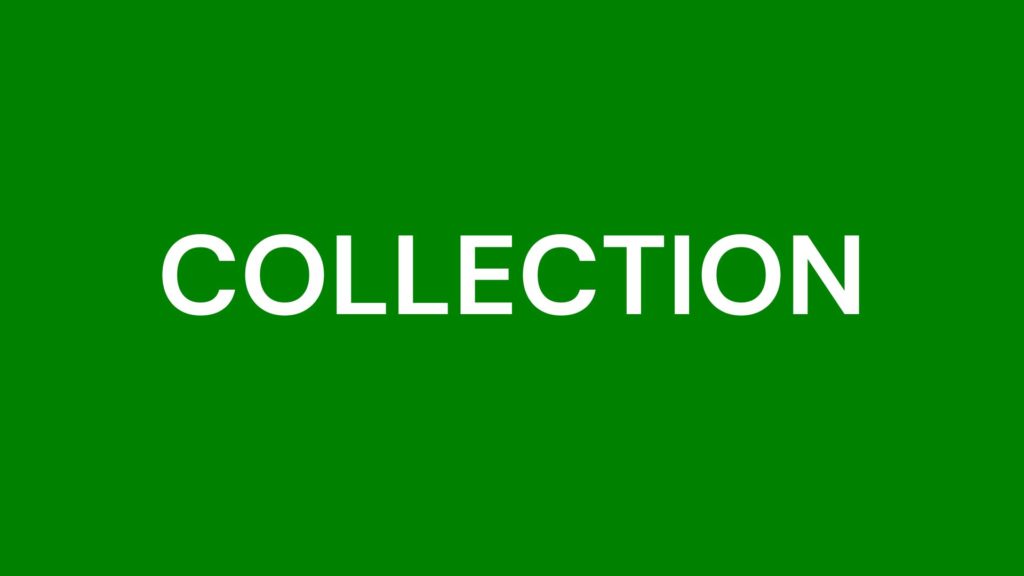
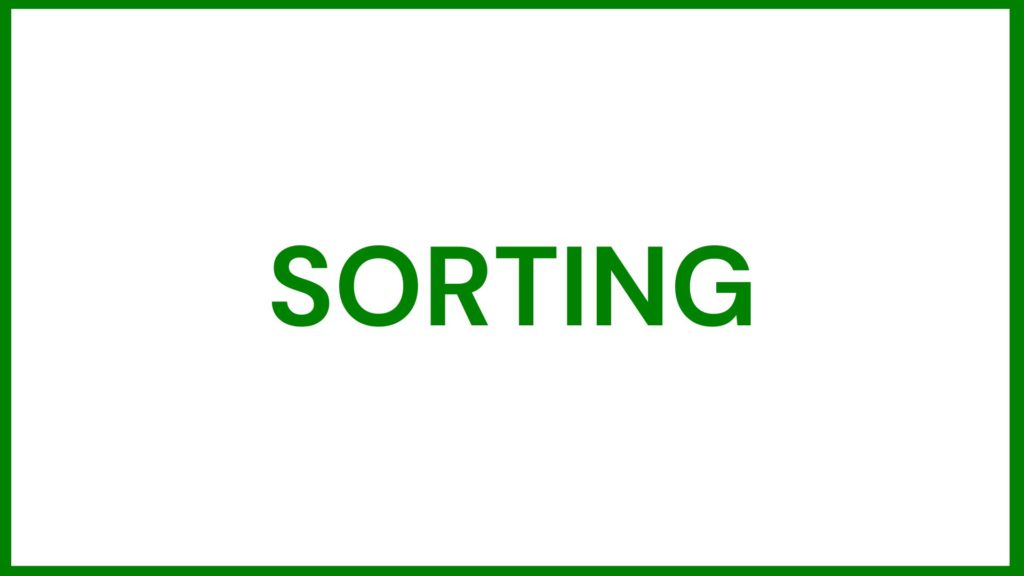
Key Principles
What does it involve? Here’s the simplified version
Operations
The above policy on waste segregation is extended throughout the campus. Following areas the operation is strictly implemented
- All the academic buildings,
- All the residential building
- All outsourced contractors for technical, janitorial, landscape, and security services, cafeteria vendors
concessionaries vendors - Other supply chain
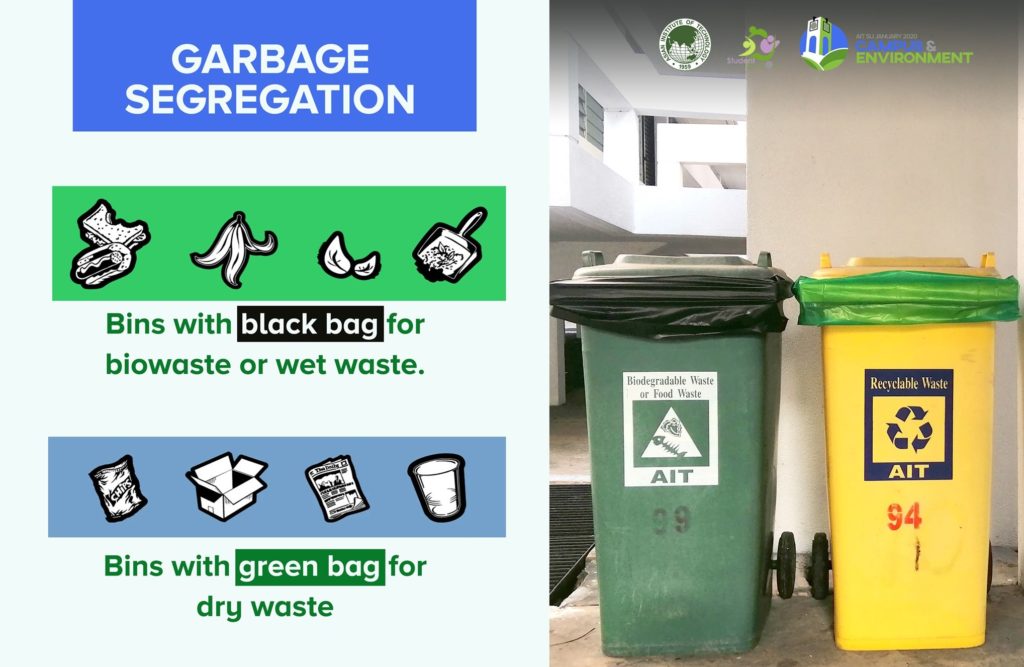
Wet Waste Examples
- Food waste
- Polystyrene food trays
- Crisp Packets
- Fruit or vegetable peels
- Food packaging
- Biowaste
Dry Waste Examples
- Plastic and glass bottles
- Papers, magazines and brochures, books
- Dry food trays or cleaned plastic food packages
- Plastic covers, paper bags
- Cardboards
- Drink cans and bottles
- Cartons

The blue bins are also provided around the campus to collect residual waste or non-recyclable waste.
Examples of Residual waste are
- Foam containers
- Electronic waste
- Paint containers
- Dinnerware and Glassware (broken and unbroken)
- Clothing Textile and Shoes
- Diapers & Pet waste
- Bulbs
Our Waste Recycle Projects
Precious Plastic Bangkok
This was a community based waste recycling solution
- Use easy to build machines
- Turn plastic waste into useful products
- Steps involve: Grind, Melt, Inject recycled plastic
- You have a new product
AIS E-Waste
- Improper disposal of electronic waste leads to long-term environmental, societal, and health impacts.
- AIS has launched the E-Waste project, promoting awareness and cross-sector collaboration for sustainable e-waste disposal in Thailand.
“Broken refrigerator, washing machine, television, air conditioner, computer, mobiles, batteries and many more…”
WON x AIT
This project involves all the clean plastic bags and plastic firms
- Stretchable: Plastic bags, shopping bags, fruit bags, packaging films, plastic parcel covers
- Hard: Straw, cutlery, water bottles, card, food parcel containers
Trash Lucky
- Trash Lucky comprises dedicated Thai individuals sparking recycling interest and action.
- The “Recycle Lucky Draw” program combines fun, luck, and environmental responsibility, targeting cleaner seas free from marine debris to protect marine life.
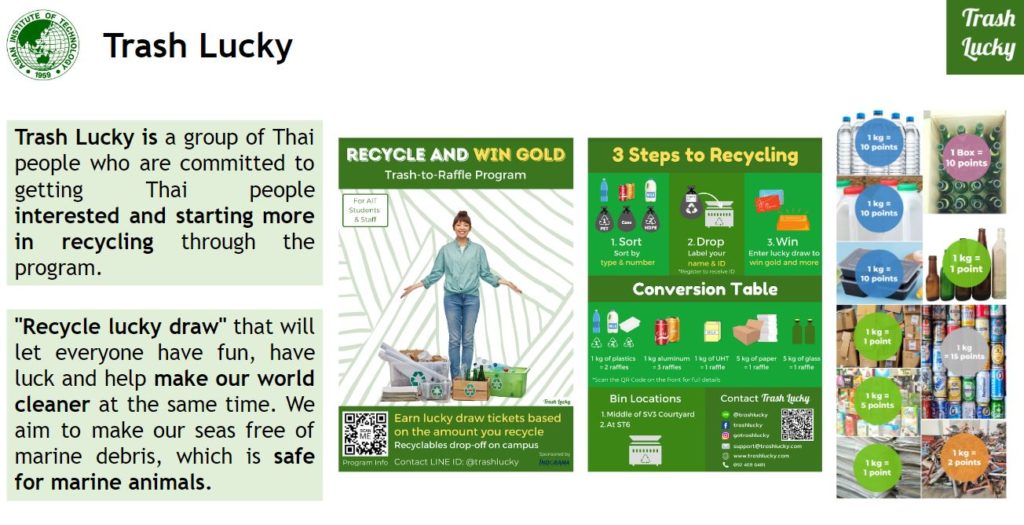
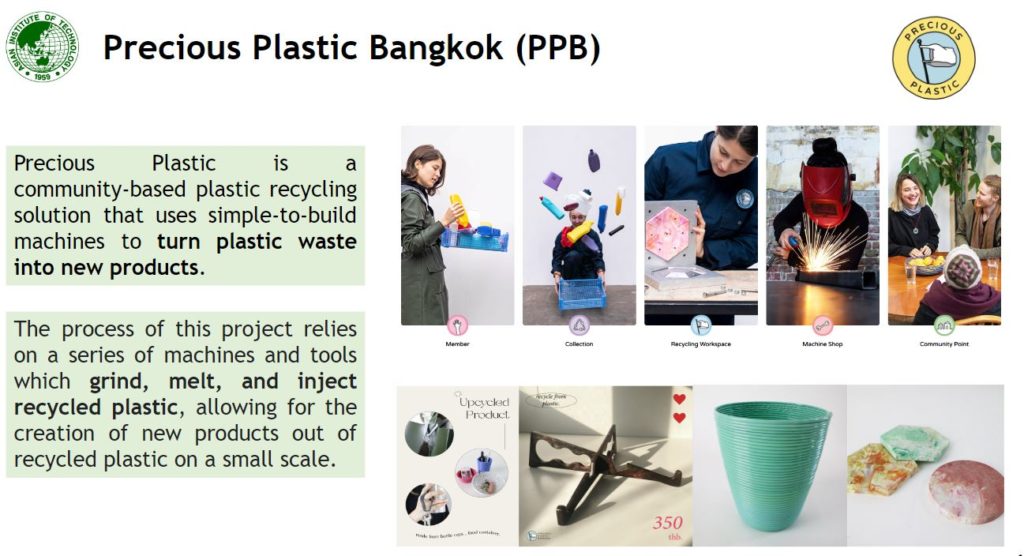
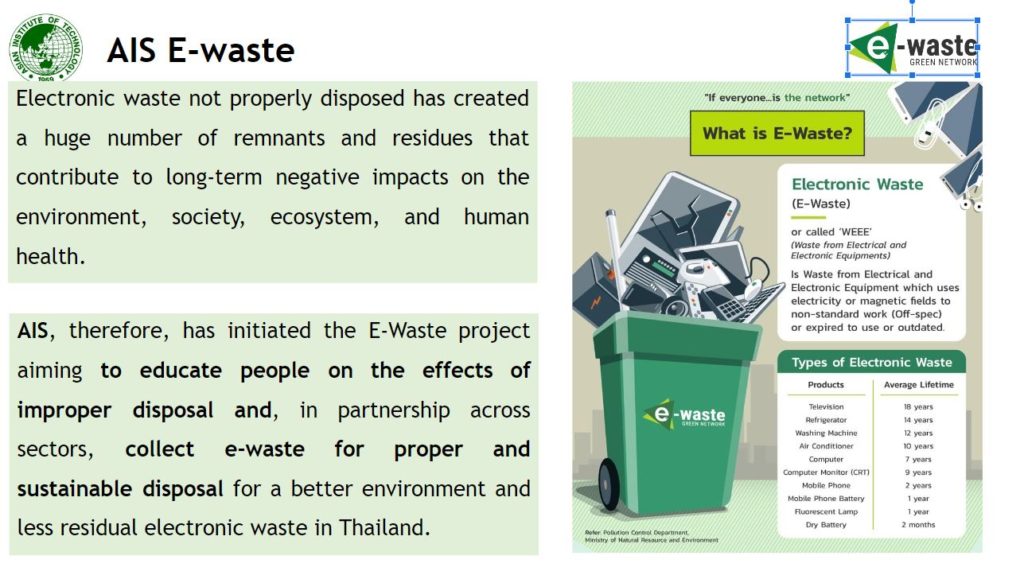
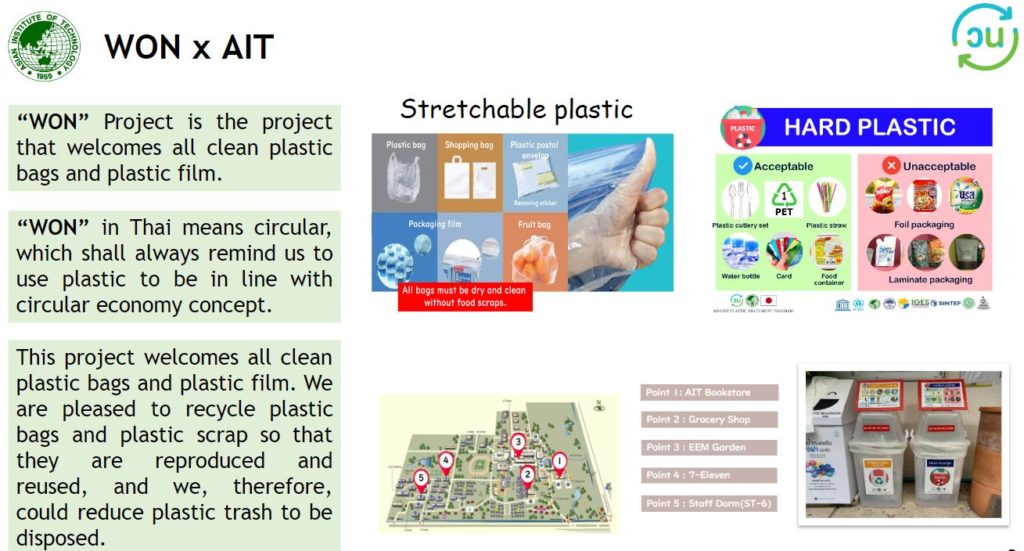
Highlights
Reduced overall waste by 1541 kgs till the year 2023
Expecting much higher numbers in 2024
Worked with companies with similar goals:
“E-Waste Green Network, Precious Plastic, Trash Lucky, WON“
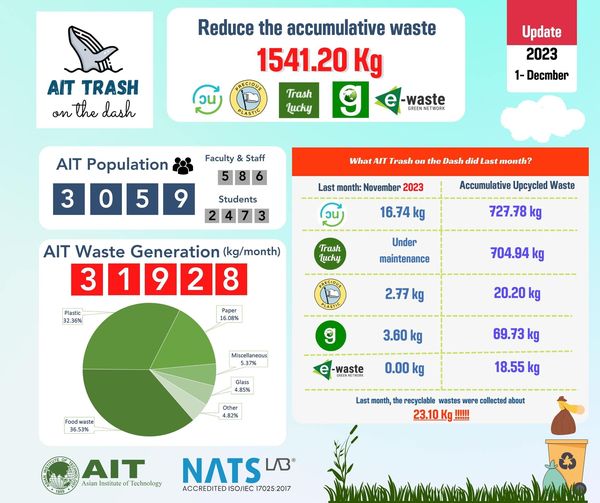
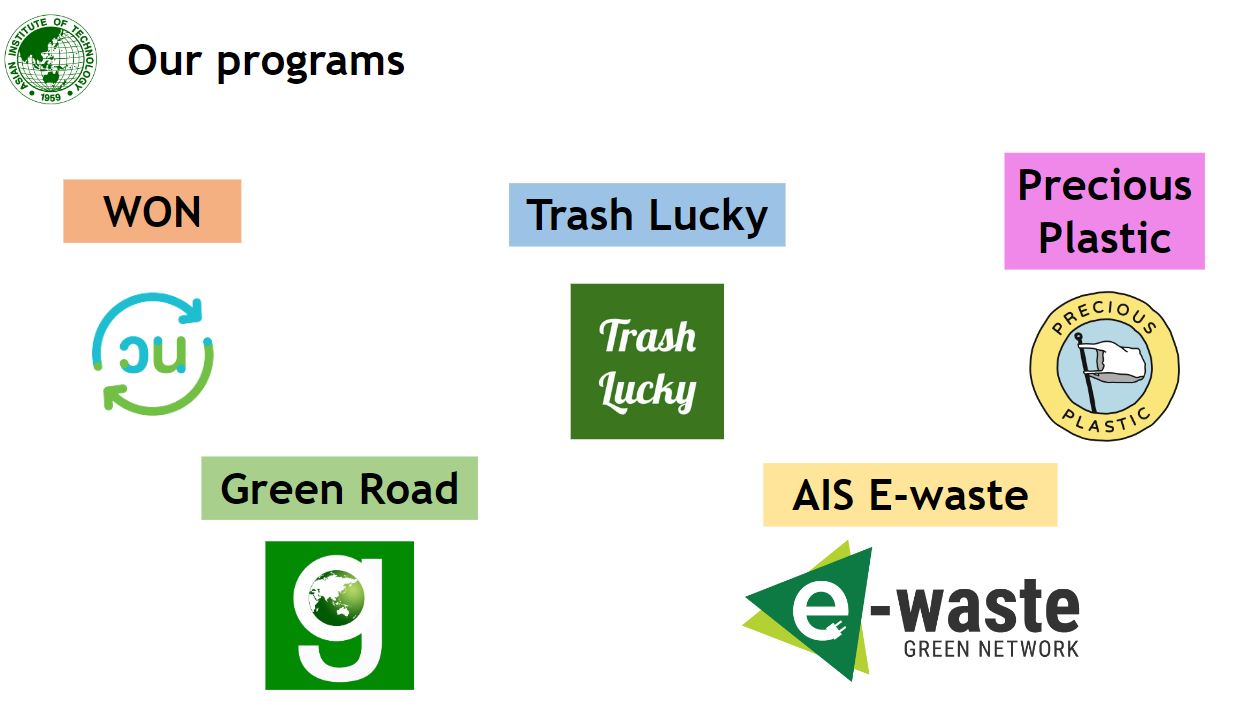
For more details on the various waste segregation programs Click Here
For the integrated waste segregation report 2020-2024 Click Here
“WON” Project is the project that welcomes all clean plastic bags and plastic film.
“Trash Lucky” is a group of Thai people who are committed to getting Thai people interested and starting more in recycling through the program.
“Precious Plastic” is a community-based plastic recycling solution that uses simple-to-build machines to turn plastic waste into new products.
“Green Road” has brought plastic waste to many benefits by making floor blocks, green roads, tables, and chairs to donate to schools, temples, temples, national parks, and public areas across the country.
AIS, has initiated the E-Waste project aiming to educate people on the effects of improper disposal and, in partnership across sectors, collect e-waste for proper and sustainable disposal for a better environment and less residual electronic waste in Thailand.
Campus Waste Segregation data for 2023
| Month in 2023 | Wet Waste(Kg) | Dry waste(Kg) | Wet waste SU and Cafeteria | Dining food waste | Cafeteria food waste | Total amount(Kg) |
| January 2023 | 12,924 | 13,020 | 6,881 | 144 | 483 | 33,452 |
| February 2023 | 11,903 | 12,551 | 6,670 | 232 | 517 | 31,873 |
| March 2023 | 14,136 | 13,568 | 8,152 | 230 | 528 | 36,614 |
| April 2023 | 12,386 | 12,067 | 8,334 | 222 | 260 | 33,269 |
| May 2023 | 12,544 | 12,640 | 7,152 | 244 | 169 | 31,785 |
| June 2023 | 12,036 | 11,569 | 6,363 | 366 | 138 | 30,472 |
| July 2023 | 12,210 | 12,128 | 7,693 | 321 | 151 | 31,241 |
| August 2023 | 12,485 | 11,998 | 7,947 | 325 | 195 | 31,928 |
| September 2023 | 11,685 | 11,291 | 7,860 | 279 | 327 | 31,442 |
| October 2023 | 12,113 | 11,589 | 8,910 | 256 | 321 | 32,157 |
| November 2023 | 10,390 | 10,173 | 7,451 | 253 | 176 | 28,443 |
| December 2023 | 11,054 | 10,907 | 8,114 | 230 | 168 | 29,709 |
| Total Annual | 145,866 | 143,501 | 91,527 | 3,102 | 3,433 | 382,385 |
Summary of waste data in 2022
| Summary of waste data in 2023 | % Change from 2022 | ||
| Total Waste | 382,385.0 | Kg | -11.22% |
| 382.4 | mt | -11.22% | |
| Average waste/month | 31.9 | mt | -11.22% |
| Dry waste | 143.5 | mt | -16.91% |
| Wet Waste | 145.9 | mt | -13.63% |
| Recyled Food Waste | 6.5 | mt | 69.21% |
| Recycled Waste | 1.9 | mt | 69.11% |
| Total recycled | 8.5 | mt | 69.19% |
“AIT’s unwavering commitment to sustainable waste management, reinforced by efficient segregation and responsible recycling, transforms our sprawling campus into an eco-conscious haven. Together, we embrace a cleaner, greener future, showcasing our dedication to environmental responsibility and a brighter tomorrow.”
